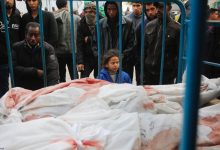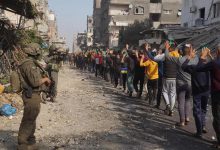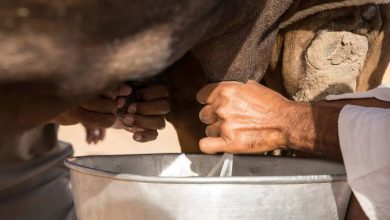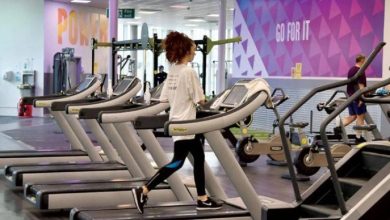Chronicles of Injustice: An Elderly Palestinian’s Ordeal Under Israeli Detention in Gaza
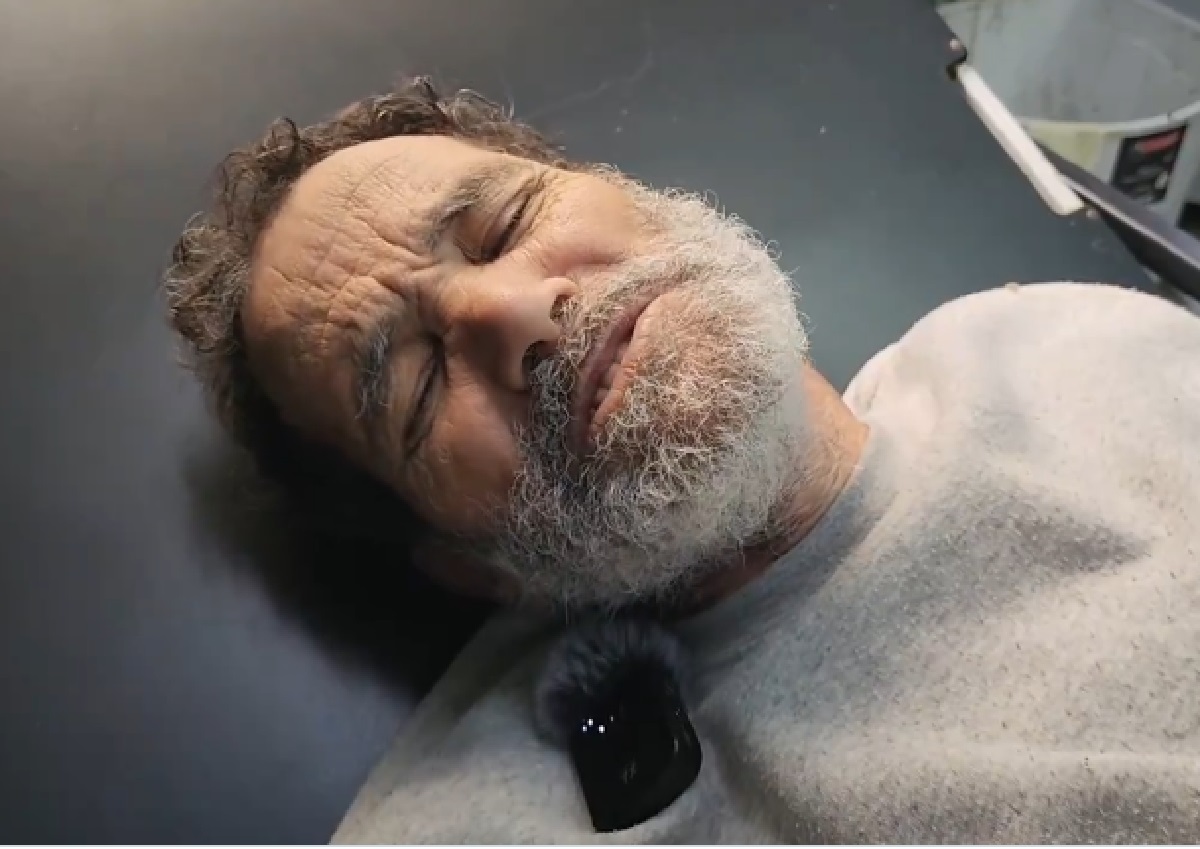
Watan-An elderly Palestinian man narrated the details of his detention by an Israeli intelligence officer for questioning before his arrest in the northern Gaza Strip.
Abu Mohammad Al-Jamal revealed that he had asked the Israeli officer to shoot him after he was exhausted by the war, the harshness of suffering, and the continuous shelling everywhere he sought refuge. He said to the officer, “Wherever we go, you bombard us. Come on, leave us alone. What do you want from us?”
The Israeli military released Al-Jamal after detaining him for about a week. He then moved to Nasser Al-Toubi Complex in the city of Khan Yunis (south) to receive treatment for injuries and illnesses he suffered during the detention period.
Al-Jamal recounted his story, saying, “When I was in Beit Lahia (northern Gaza), I couldn’t find a place to move to. I went to Kamal Adwan Hospital and all the schools in the north, and I found them full of displaced people.”
He added, “I found the Fakhoura School in Jabalia town damaged by rockets and shells, and no one was there. There was a room next to the school gate (the school guard’s room) that was empty and had not been targeted, so I sat in it and would go out every few days to get some food and water.”
The harassment began with a “robot.”
While the elderly Palestinian man was trying to consume what little food he had, typically bread and a bit of thyme, he was startled by a “robot” approaching him and demanding to see his ID.
Abu Mohammad Al-Jamal recounted his story to Anadolu Agency, stating, “They sent me a machine (a robot used by the Israeli army for exploring areas believed to be dangerous for its soldiers) with two cameras. It spoke to me, asking for my ID and to open the coat I was wearing.”
He added, “I opened the coat for them and showed my ID, after which a small drone came and inspected the room where I was living.”
Being subjected to a naked inspection and taken to an unknown location
After completing the room inspection, the robot instructed “Abu Mohammad” to go outside, where he was greeted by Israeli soldiers who asked him to remove his clothes. They then searched him, placed plastic handcuffs on his hands, and took him to an unknown destination.
He pointed out that an intelligence officer began interrogating him, saying, “The officer spoke to me in Arabic, and I replied to him in Hebrew. I told him, ‘Wherever we go, you bombard us. Come on, leave us alone. What do you want from us?'”
Question about Hamas
The Israeli officer asked him about his neighbors and relatives affiliated with the Islamic Resistance Movement “Hamas.” The elderly Palestinian replied, “I haven’t seen anyone for a long time, and everyone knows that I don’t have relationships with anyone. Ask the collaborators. Even my relatives only visit me once a year because I live in a distant place.”
After completing the interrogation with Abu Mohammad Al-Jamal, Israeli soldiers led him to a military vehicle. He described the subsequent events, saying, “They beat me, humiliated me, and threw me on the ground.”
He added, “They blindfolded me with a piece of cloth and took us to a large barrack (a tin building). After that, they transferred us to another barrack and then to another place. They would beat us each time and throw us from the jeeps.”
He stopped eating to avoid the need to relieve himself
The Israeli army often prevented Palestinian detainees from attending to their needs, so Abu Mohammad Al-Jamal, unable to endure this situation for long, was forced to relieve himself in his place of detention.
He says that afterward, he decided to stop eating so that he wouldn’t need to attend to his needs. After four days, he suffered from dehydration without any concern from the Israeli soldiers who were holding him along with dozens of others.
Days after his arrest, the Israeli occupation army released Abu Mohammad, along with several other Palestinians, through the “Kerem Shalom” crossing, located in the southernmost part of the Gaza Strip.

